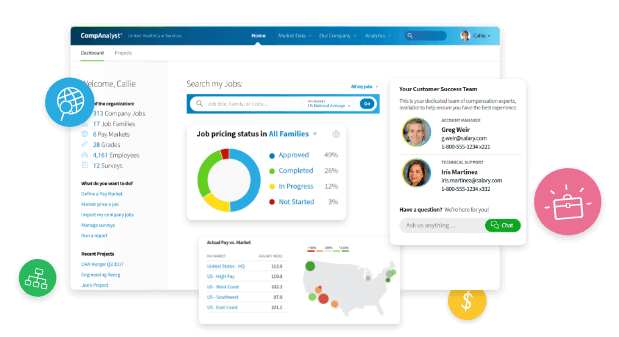How much does a Data Architect II make in Valencia, ES? The average Data Architect II salary in Valencia, ES is €34,099 as of April 08, 2021, but the range typically falls between €27,545 and €52,764. Salary ranges can vary widely depending on many important factors, including education, certifications, additional skills, the number of years you have spent in your profession. With more global market data that allows you to price your jobs around the world and compare job salaries across countries and cities on real-time compensation data, Salary.com helps you to determine your exact pay target.
-
-
-
View Average Salary for Spain
-
Choose Similar Job
-
Pick Related Category
-
Find More Jobs in Spain
Skills to Boost a Data Architect II Salary
Mastering key skills can significantly increase your earning potential as a Data Architect II. According to Salary.com's Real-time Job Posting Data, expertise in Troubleshooting can lead to a 4% salary raise, while strong Big Data skills boost pay by a 3%. Even Agile can result in a 2% salary increase.
| Skills | Salary | Demand | |
|---|---|---|---|
| Skill & Salary | Demand | ||
| €35,463 |
Troubleshooting
€35,463
|
4%
|
|
| €35,122 |
Big Data
€35,122
|
3%
|
|
| €34,781 |
Agile
€34,781
|
2%
|
|
| €34,781 |
Data Quality
€34,781
|
2%
|
|
| €34,781 |
Data Integration
€34,781
|
2%
|
What does a Data Architect II do?

Data Architect II
Nagoya, JP
Contribute to an architecture roadmap covering transactional, operational and business intelligence.

Data Architect II
Formosa, AR
Contribute to development of standards and practices for Java, JavaScript, and SQL development.

Data Architect II
Perth, AU
Contributes to product and solution designs to address critical issues and complex problems.
Are you an HR manager or compensation specialist?
Salary.com's CompAnalyst platform offers:
- Detailed skills and competency reports for specific positions
- Job and employee pricing reports
- Compensation data tools, salary structures, surveys and benchmarks.

Career Path for Data Architect II
 About Valencia, Spain
About Valencia, Spain
 Data Architect II Pay Difference by Cities
Data Architect II Pay Difference by Cities
| City, Country | Compared to national average |
|---|---|
| City, Country Madrid, ES |
Compared to national average
|
| City, Country Bilbao, ES |
Compared to national average
|
| City, Country Alicante, ES |
Compared to national average
|
| City, Country Cordova, ES |
Compared to national average
|
| City, Country Valladolid, ES |
Compared to national average
|
| City, Country Vigo, ES |
Compared to national average
|
Similar Jobs to Data Architect II in Valencia, ES

| Job Title | Location | Salary Range in EUR |
|---|---|---|
| Job Title Data and Information Architect I | Location Valencia, ES |
|
| Job Title Data and Information Architect II | Location Valencia, ES |
|
| Job Title Data and Information Architect III | Location Valencia, ES |
|
| Job Title Data Architect I | Location Valencia, ES |
|
| Job Title Data Architect III | Location Valencia, ES |
|
 Understand the base salary paid range for a Data Architect II in Valencia, ES
Understand the base salary paid range for a Data Architect II in Valencia, ES
Average Base Salary
Core compensation














